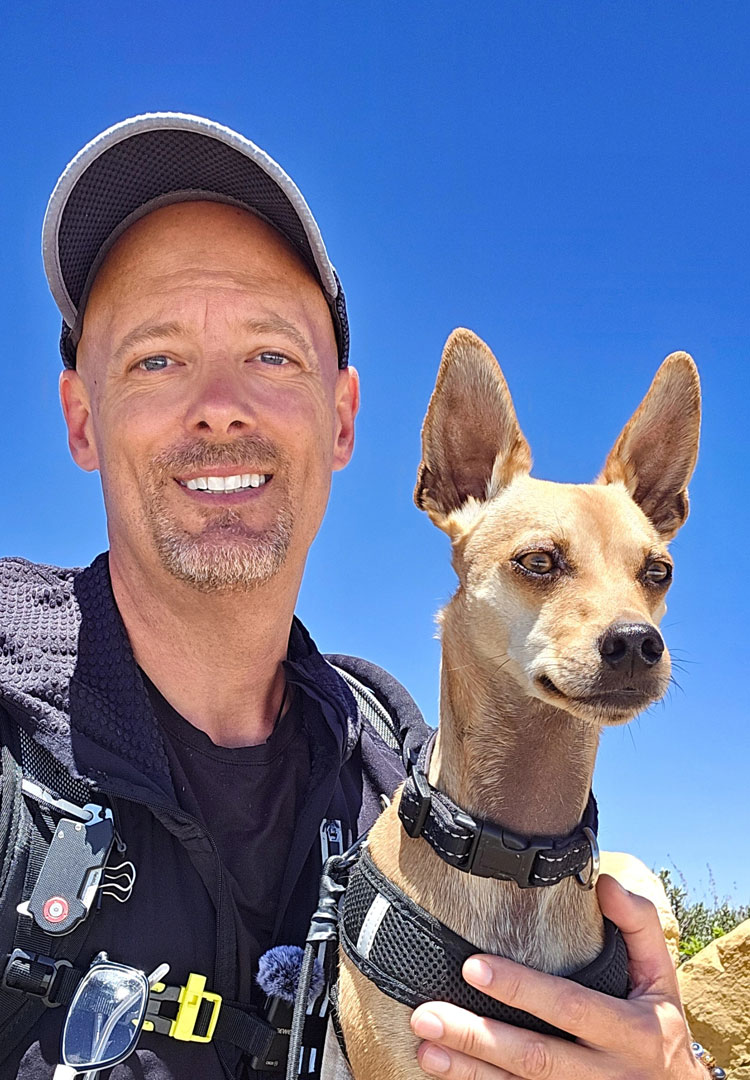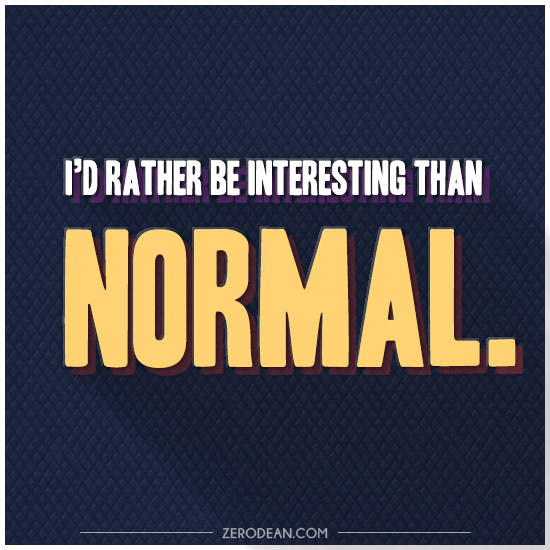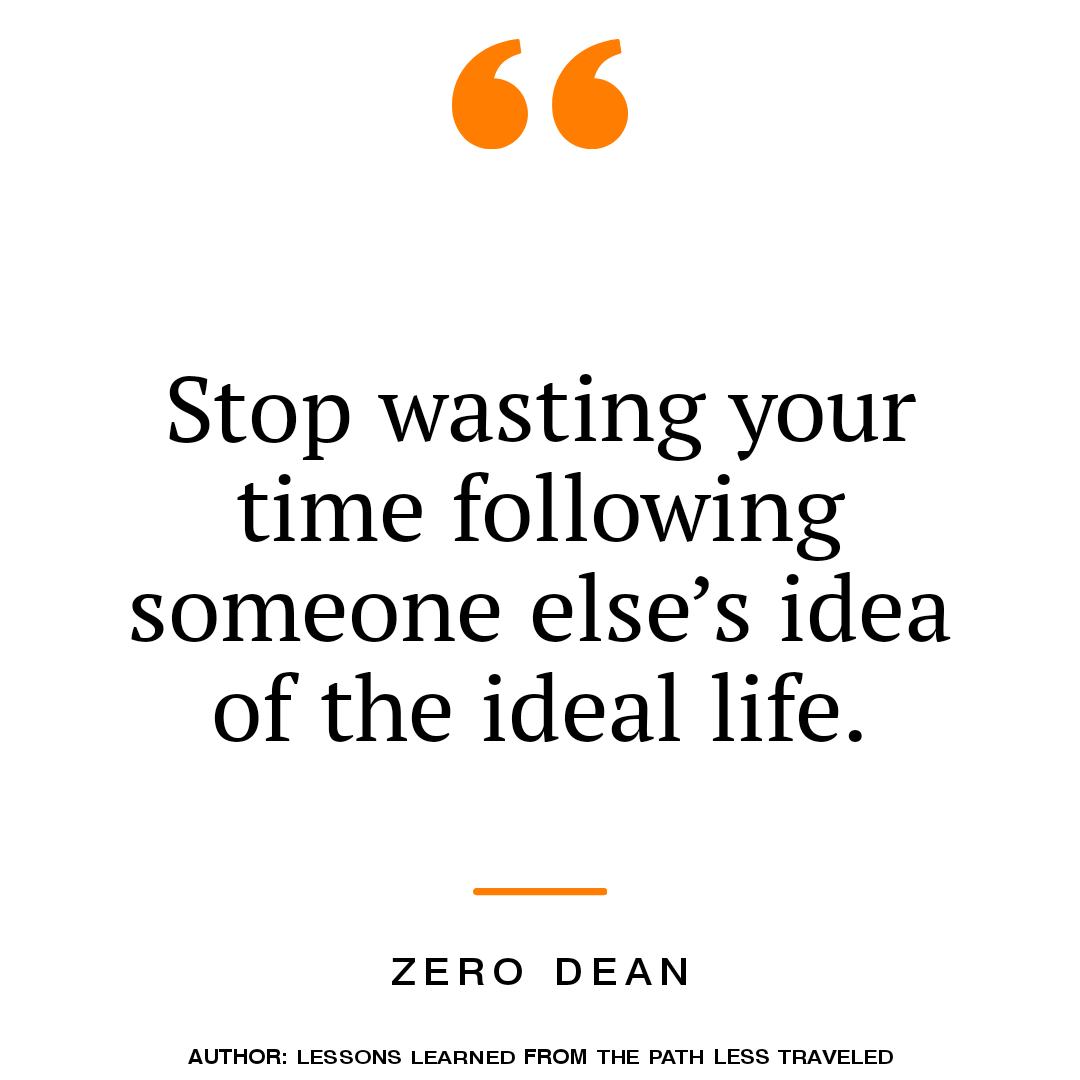The problem with the expression “Be yourself” is that when it truly comes down to it, many people don’t know who they are.
I actually much prefer Joss Whedon‘s version better…

It’s funny because it’s true. Some people just kind of suck at times, don’t they?
But the fact is, we all do — but we rarely recognize the instances in which we “suck” — or inconvenience others — because we tend judge ourselves by our intentions and others by their actions.
Think of it this way, when we cut someone off by accident while driving, we recognize for what it was, an honest mistake.
We may even mentally apologize to the other driver. And 5 minutes later we’ve forgotten about it.
So, in our minds, we’re definitely not the kind of person that cuts people off while driving.
But from the other driver’s perspective, we are. And we suck.
It’s just a matter of perspective.
Even at times when we know we’re being rude by tailgating or running a red light because we’re in a hurry, we forgive ourselves because we feel justified for doing it. And because of that, we often forget our actions (driving aggressively) and only think or our intentions (not being late).
“Have you ever noticed that anybody driving slower than you is an idiot, and anyone going faster than you is a maniac?” – George Carlin
I’m only using driving as an example because it’s easy to relate to. This issue of perspective goes far beyond driving and into every aspect of our lives.
The key is being open-minded and empathetic enough to see it.
—
Another problem with the expression “be yourself” is that many people have never truly taken the time to question who they really are and how they know what they know.
Basically, they haven’t asked themselves, “What kind of person am I really and why am I like this?”
When people really dig deep, they come to realize that they’ve been influenced by things that go far beyond themselves. That they haven’t always been in complete control of what they’ve learned or how they were “trained” to be.
As children we often just accept things as we are told without truly questioning how we truly feel about these things.
And as adults, we often justify our actions based on a, “well everyone else is doing it and that’s just the way it is” mentality.
“My friends are into this, so it must be cool.”
“My family has always done things this way, so I will teach my family to do it this way, too.”
“The advertisements are great and I see them everywhere, the product must be good.”
“This doesn’t seem right, but it seems like it’s generally accepted by everyone, so it must be ok.”
We often spend so much of our lives living under the influence of our friends, family, advertising, and societal pressures, that we just assume that our opinions — or our desires — are our own.
This can be compounded by the fact that, not only do we grow accustomed to acting a certain way, all of those that know us learn to expect a certain set of behaviors from us as well.
So in order to maintain expectations, we maintain our behavior — even at times when our internal desire is to act otherwise. We have learned from previous experience that to deviate from our expected behavior can lead us to disappoint those who know us — or at least uncomfortably surprise them.
So rather than run the risk of rocking boats, we often succumb to the pressures of staying within our “behavior box” — which is to say, the boundaries of what is considered our “normal behavior” or our respective roles within family and friendships.
While some people will eventually exert their independence over time and break the bounds of their behavior box, others remain within this box out of fear of some form of rejection by friends or family. Because even though these behaviors no longer feel genuine, they feel more comfortable than what we fear might happen if we deviate from the status quo.
This is often illustrated when one plays a specific role or adopts a specific set of behaviors within a family (or circle of friends) and then adopts another more genuine set of behaviors elsewhere.
To act in this fashion, being real in one set of circumstances and false in another, is to sacrifice our true selves — and our integrity — and it can affect everything in our lives, from the types of jobs we hold, to what we buy with our money, to the type of people we have relationships with, and where we go on vacation.
These are not trivial things as they often build upon each other — until eventually, one finds themselves living a lifestyle that no longer fits. And while this lifestyle may conform to the expectations of others — and even appear to thrive on the surface (ie. “the perfect career” or “the perfect marriage”) — it can lead to a sense of unhappiness and discontent because the life being lived isn’t in harmony with one’s genuine desires.
This is why it’s important to know and “To thine own self be true.” (Shakespeare)
“He who knows others is wise; he who knows himself is enlightened.” – Lao Tzu
While the saying, “The self is not something one finds, it is something one creates.” (Thomas Szasz) is true, unless you’re conscious of — and take an active positive role in — your own development, the person you reflexively think you are may not be the true you. This is especially the case when your own behavior and actions betray you, such as at times when when you’re not feeling well or you act purely out of reflex.
“Men best show their character in trifles, where they are not on their guard. It is in the simplest habits, that we often see the boundless egotism which pays no regard to the feelings of others and denies nothing to itself.” – Arthur Schopenhauer
While we may not like every aspect of who we are at all times, we are always responsible for how we act, regardless of how we feel. And it is especially those aspects of ourselves that we don’t like that we should work on.
This can include such things as raising one’s voice in an argument (instead of improving one’s argument), snapping at people when one is not feeling well, or escalating a situation when one knows it is exactly the opposite of what they want.
Because they are so engrained, working on these less-than-desirable qualities of character often isn’t a simply a matter of making a decision sticking with it. But if one persistently strives for consistency — instead of perfection — one can, over time, alter any of their behaviors to those they consider more representative of the person they want to be.
This can be a process for a number of reasons. In some cases, we may have conformed to our behavior box — and the expectations of others — for so long, that we need to experiment with the freedom of acting from true self desire in order to find the newer behaviors that feel right. This can mean taking responsibility for one’s self in a way that no longer seeks the approval or acceptance of others.
Or in the case of old undesirable habits, it can require many tries before new, more desirable habits replace reflexive responses.
“Every time you are tempted to react in the same old way, ask if you want to be a prisoner of the past or a pioneer of the future.” — Deepak Chopra
This whole process of forging one’s character can require a sort of reinvention of one’s self — and this reinvention can affect everything in one’s life. But if living true to one’s self and with integrity is one of the goals — and true happiness, comfort, and contentment with one’s authentic self is another, then the process of reinvention is a worthwhile one.
“As we allow the process of reinvention we often have to leave jobs, locations, people and things behind.” — Bethany Eaton (When your life no longer fits – reinvent!)
It is not until we take the time to question who we are, what we know, and how we know what we know that we begin to truly find ourselves. And it isn’t until we’ve deliberately distinguished ourselves from our influences that our genuine self is revealed.
And if you’re truly living life to the fullest, doesn’t that not only encompass continuously and boldly reaching out for newer, richer experiences, but also taking an active role in how those experiences alter you as a result of having them?
“Living with integrity means: Not settling for less than what you know you deserve in your relationships. Asking for what you want and need from others. Speaking your truth, even though it might create conflict or tension. Behaving in ways that are in harmony with your personal values. Making choices based on what you believe, and not what others believe.” — Barbara De Angelis
“You cannot dream yourself into a character; you must hammer and forge yourself one.” — Henry David Thoreau
“Unless you know who you are, you will always be vulnerable to what people say.” — Dr. Phil
“The self is not something ready-made, but something in continuous formation through choice of action.” – John Dewey
“Not till we are lost do we begin to find ourselves.” – Henry David Thoreau

















